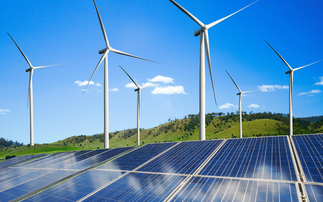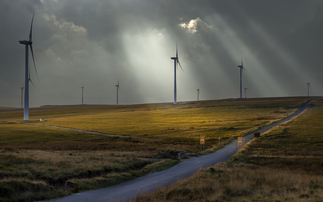Delays, flawed regulations, and PR fiascos have left the shale gas industry facing an uncertain future, despite yesterday's planning victory
Finally. After six years of going "all out for shale gas" the UK's nascent fracking industry has one project with planning approval, which now sits proudly alongside the two projects with planning rejections (appeal pending), the project abandoned over earthquakes, and the project that delivered more headline-grabbing arrests of MPs than actual gas.
However, the understandable temptation among the UK's small but noisy group of shale gas cheerleaders to hail Third Energy's planning success as a landmark for the sector risks being premature. It is less of a landmark, more of a staging post on a journey to a destination that is still very much unknown.
The known unknowns faced by Third Energy and its peers in the UK fracking industry are considerable, and it will take a great deal of luck and a much higher level of commercial and PR savvy than the industry has demonstrated to date if it is to ever deliver a safe, secure and sustainable shale gas industry in the UK.
First there is the possibility of some sort of appeal against North Yorkshire Council's decision and the probability of significant protests against the project. When planning approval is granted in the face of 4,375 objections and just 36 letters of support it becomes hard to argue with local activists' complaints the development still lacks a "social licence" to operate.
Then there are the inherent risks that come with any fracking project. Third Energy's boss told the BBC over the weekend there was 'no risk to the public or the environment' associated with the project. That is just not true and we can only hope his fracking operations are more precise than his language. All infrastructure projects have risk, including renewable energy developments. The question is always whether the risks are acceptable and manageable, and whether they are outweighed by the benefits. As the previous attempt to frack in the UK demonstrated, the slightest tremor or administrative error and the calls for drilling to halt will once again reach a crescendo.
These risks are further amplified by legitimate concerns about the regulatory framework the project will operate within.
The government keeps saying the UK boasts the world's best fracking regulations, which is true, but only in the same sense as Sunderland currently boasts the best football team in the North East. The only relevant country the UK has to compare itself with when it comes to fracking regulations is the US, where for the past decade rules have been so lax parts of the country have been cauterised and environmentalists collect fracking-related pollution horror stories like their predecessors used to collect butterflies.
The UK's fracking regulations are better than those found in the US, but they still fail to include key provisions on independent well monitoring recommended by a shale gas industry appointed task force, have watered down promised National Park protections, and feature a loophole so large you could sail an unregulated LNG tanker through.
Third Energy and its competitors may be able to successfully navigate these risks and deliver safe fracking operations, but this will only allow it to address the next challenge: whether or not there is any gas that can be commercially extracted.
If you read through the breathless columns predicting a shale gas boom in the UK they invariably gloss over two inconvenient truths, climate change and the fact no one yet knows whether the suspected gas reserves will prove economically viable. The US shale gas industry's dirty little secret (alongside the dirty little not-so-secret stories about pollution impacts and methane leaks) is that remarkably few people have made money off the shale gas and oil boom.
Relatively low gas prices and challenges with extraction rates have left numerous developers battling debt mountains and facing an uncertain future. Ever-improving drilling and fracking technologies may yet allow the industry to address these financial woes, but it is anything but guaranteed UK shale gas developers will be able to move seamlessly from exploration to commercially viable extraction.
All of which brings us to the last major challenge faced by those who want to build a large scale fracking industry in the UK: climate change.
Like almost every part of the UK's low carbon energy strategy, the government's shale gas vision has been subjected to lengthy delays. It is worth noting, as an aside, that with new nuclear, renewable heat, renewable transport, domestic energy efficiency efforts, smart meters, new gas plants, CCS, and shale gas extraction all running to a greater or lesser degree behind schedule the only parts of the government's clean energy agenda that appears to be on track is renewable power deployment and the coal phase out (and there are worrying questions about how long that will last). The sluggish pace at which new shale gas projects have emerged means the time available for the sector to act as the promised 'bridging fuel' to a genuine low carbon energy system has been badly curtailed.
If and when UK shale gas projects start delivering commercially viable domestic gas they will be entering a market where the power sector has to be close to completely decarbonised by the early 2030s, and where the failure to deliver large-scale CCS plants will mean the primary lifeline the industry could have clung to has been severed. Advocates of shale gas argue the transport and heat sectors may provide alternative life lines, but this would require an historic transformation of the transport sector - at a time when electric vehicles appear to have a jump on natural gas alternatives - and a head-in-the-sand dismissal of the fact emissions targets require the decarbonisation of the heat sector during the 2030s.
There may be room for a small, boutique shale gas industry in the UK through to the late 2030s, but the decarbonisation imperative and ever more intense competition from low-cost renewables and emerging clean technologies make a shale gas boom as unlikely as it is undesirable. The UK shale gas industry may have taken a small step forward this week, but celebrating a planning victory after six years of overhyping the industry's potential and alienating many of its key stakeholders is still akin to celebrating the launch of a new typewriter in 1975. The longer term outlook for the sector remains as uncertain and challenging as ever.









